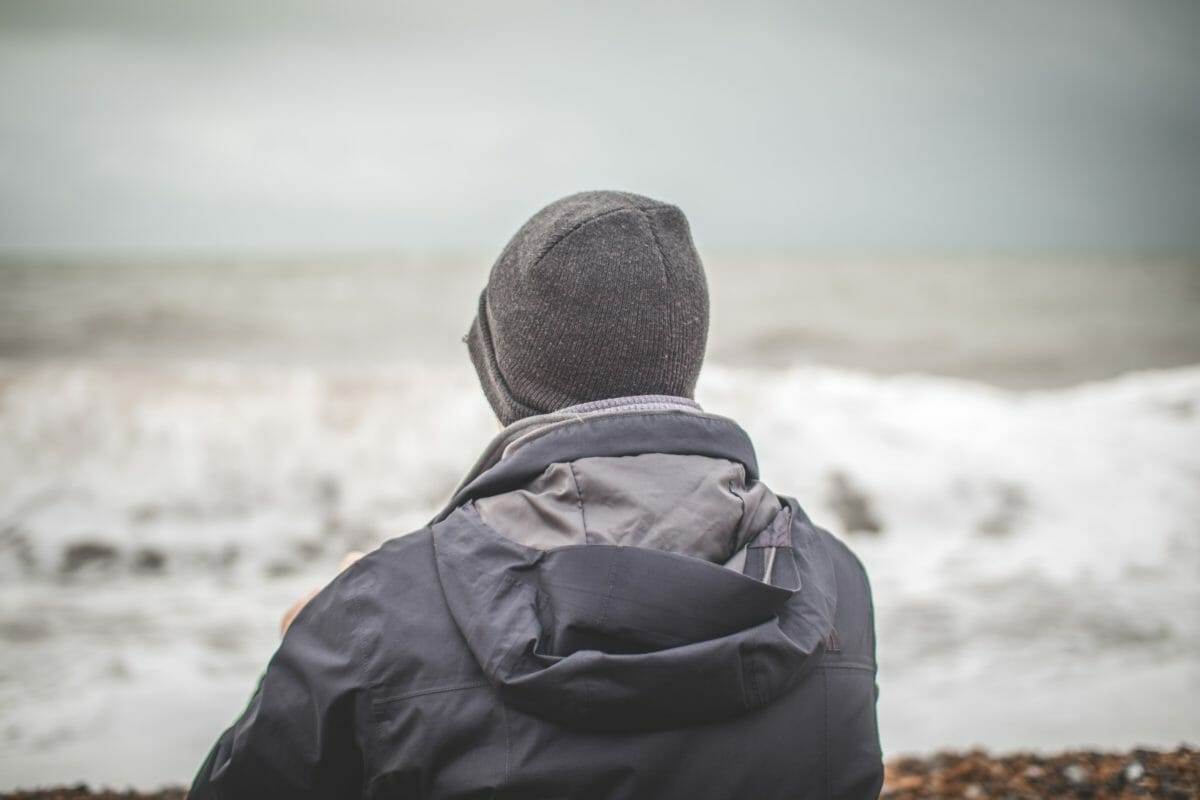What Happens if You Take Naltrexone and Drink Alcohol
What is Drinking on Naltrexone Like?
Posted on December 11, 2020

Changing your relationship with alcohol looks different for everyone. Some people set goals for sobriety and complete abstinence, and others are looking to cut back on their drinking and moderate. Regardless of your goal, you don't have to do it alone. You can engage in community support, work with a therapist on a personalized alcohol therapy program, and take medication to stop drinking , which has proven successful for many individuals looking to make a change.
Prescription medication that reduces the feeling of reward or pleasure after you drink can be a very effective tool that many people aren't aware of. One of the most common medications for treating alcohol use disorder is called naltrexone. Many people use naltrexone to combat alcohol cravings and reduce their intake, while others use it with the goal of achieving and maintaining complete sobriety. No matter your goal, you might be wondering what you may experience while drinking on naltrexone. To answer this question, it's important to understand how naltrexone works.
Understanding How it Works
Naltrexone limits your ability to feel rewarding or pleasurable effects after drinking alcohol, and thus reduces your craving for it. The way naltrexone treatment works is by altering what alcohol does to your brain. Normally, alcohol stimulates the release of biological molecules, called endorphins, in the brain that make you feel that happy and euphoric feeling when you drink. Naltrexone belongs to the class of drugs called opioid antagonists. An opioid antagonist blocks endorphins from binding to their receptors, so you no longer feel the same feelings of elation when you drink. Therefore, it's important to note that when drinking on naltrexone, you may not feel the same pleasurable effect you used to feel when drinking alcohol.

How Soon Does Naltrexone Start Working?
At Monument, you will connect with a physician who will prescribe medication if they deem it safe and appropriate based on your medical history and goals. If indicated, your physician will likely dose naltrexone at the FDA-recommended daily dose of 50 mg. Naltrexone's duration of action is approximately 24 hours. Therefore, an individual will have a therapeutic dose throughout the day.
In general, oral naltrexone is absorbed well by the body, making it very effective for most people who take it. Once you take naltrexone, the medication reaches its maximum effect in about one hour, so it begins working very quickly.
What Happens if You Drink While on Naltrexone?
A common question is whether or not it is harmful to drink alcohol while taking the medication. The short answer is this: while there is no risk of a dangerous reaction between naltrexone and drinking alcohol, naltrexone does not prevent the negative effects of alcohol use, such as judgment impairment, slowed thinking and worsened motor skills, among others.
How naltrexone works is by lessening the experience of pleasure from drinking. This does not mean that the alcohol you consume will not affect you. Drinking on naltrexone still subjects you to the same types of psychological and behavioral risks of drinking without naltrexone. Since naltrexone prevents you from feeling the same way you usually do when you drink alcohol, it can be difficult to realize that you are intoxicated. So, to be safe, you should still avoid activities that you normally would not do when you drink, like driving, operating machinery, or engaging in activities that rely on motor skills and coordination of movements.
While it doesn't counteract the negative side effects of drinking, naltrexone does reduce alcohol craving, and is an effective tool for ultimately reducing your alcohol intake and living a healthier life. This stems from your brain creating lower feelings of reward and pleasure when alcohol is consumed. As for many others, one of our members shared seeing success with naltrexone to slowly reduce alcohol intake. Over time, the pleasurable effect decreased and deliberate alcohol consumption turned into healthier habits or no drinking at all.
Addressing anxiety while managing your drinking
If you're feeling anxious, you are not alone. Anxiety and drinking are often interconnected. Join a candid conversation about building coping skills to address anxious feelings while navigating sobriety or moderation.
Check out the Schedule
Do You Still Feel Drunk While Taking Naltrexone?
Drinking while on naltrexone is unlikely to make you feel the same level of intoxication or 'buzz' you experience when drinking without it.
However, when drinking on naltrexone, the alcohol can still:
- impair your judgment
- impair your ability to think and perform actions normally
Keep this in mind if you reach for a drink while taking naltrexone.
People who drink alcohol after taking naltrexone have described the feeling as lacking the 'buzz' generally associated with alcohol intake, with some people describing it as drinking any other beverage.
Can Drinking on Naltrexone Make You Sick?
You might be wondering what it feels like to take naltrexone and drink alcohol. This medication will not make you feel sick if you drink alcohol while taking it.
In contrast, another medication used to treat alcohol use disorder, disulfiram, increases alcohol sensitivity when consumed. This increased sensitivity can cause you to become very ill, as disulfiram causes the same effects of a hangover almost immediately after alcohol is ingested. Naltrexone does not have the same effect.
Clinical trials have shown that naltrexone is safe and well-tolerated when taken while still drinking.
With that said, naltrexone alone can still have side effects which should be considered and discussed with a physician before deciding to take it. The most common side effects are nausea and headaches. When someone experiences a side effect, they tend to be mild and lessen/resolve with time.
Is Naltrexone Right For You?
How do you decide whether naltrexone is right for you? You don't have to make this decision alone. At Monument, we connect you to a licensed physician to discuss your options. They will learn about your medical history, preferences, and goals, and let you know what is safe and appropriate. If medication isn't right for you for any reason, don't be discouraged. You can achieve your goals with the support of other alcohol treatment options like community support and specialized therapy.
We understand that finding the right approach to change your drinking habits can be challenging, and we're here to connect you to expert clinicians to guide you along the way. You can do this! Talk to a physician to determine if naltrexone is right for you.
Click here to explore treatment plans, and connect with a physician about your medication options.
Disclaimer: Our articles and resources do not constitute clinical or licensed therapy or other health care services. If you need counseling or therapy services please contact a licensed provider. If this is a medical emergency, call 911.
Sources:
https://pubmed.ncbi.nlm.nih.gov/15200577/
https://pubmed.ncbi.nlm.nih.gov/11139409/
https://www.ncbi.nlm.nih.gov/pmc/articles/PMC2565602/
https://jamanetwork.com/journals/jama/fullarticle/1869208
Important Safety Information
Naltrexone has t he capacity to cause hepatocellular injury (liver injury) when given in excessive doses. Naltrexone is contraindicated in acute hepatitis or liver failure, and its use in patients with active liver disease must be carefully considered in light of its hepatotoxic effects. In the treatment of alcohol dependence, adverse reactions include difficulty sleeping, anxiety, nervousness, abdominal pain/cramps, nausea and/or vomiting, low energy, joint and muscle pain, headache, dizziness and somnolence. This is not a complete list of potential adverse events associated with naltrexone hydrochloride. Please see Full Prescribing Information for a complete list.
The most common side effects of Disulfiram may include drowsiness, tiredness, headache, acne, and metallic-like taste in the mouth. Call your doctor if you have signs of serious side effects such as decreased sexual ability, vision changes, numbness of arms or legs, muscle weakness, mood changes, seizures, or confusion. Do not take Disulfiram if you are allergic to any of the ingredients. If you begin to have signs of an allergic reaction, then seek immediate medical attention. Avoid consumption of alcohol while taking this medication, as it may lead to adverse side effects. Talk to your doctor about the history of your medical conditions including if you have or have had diabetes, underactive thyroid, brain disorders, liver or kidney disease, personal or family history of regular use/abuse of drugs. Certain drug interactions may lead to serious adverse side effects. Let your doctor know about any other medications you are taking. This is not a complete list of potential adverse events associated with Disulfiram. Please see Full Prescribing Information for a complete list.
About the Author
![]() Monument is an online platform for those looking to change their relationship with alcohol. We connect members to a free anonymous community, therapist-moderated groups, and a collection of resources to provide the support and information they deserve. Members seeking medical treatment are introduced to a licensed physician and a specialized therapist to develop a personalized treatment plan specific to their goals. Monument is affordable, accessible, and research-based, so a healthy relationship with alcohol is attainable and celebrated by all.
Monument is an online platform for those looking to change their relationship with alcohol. We connect members to a free anonymous community, therapist-moderated groups, and a collection of resources to provide the support and information they deserve. Members seeking medical treatment are introduced to a licensed physician and a specialized therapist to develop a personalized treatment plan specific to their goals. Monument is affordable, accessible, and research-based, so a healthy relationship with alcohol is attainable and celebrated by all.
More From Monument
About Treatment
How Does Disulfiram Work?
By Jiseung Yoon
What Happens if You Take Naltrexone and Drink Alcohol
Source: https://joinmonument.com/resources/what-is-drinking-on-naltrexone-like/


0 Response to "What Happens if You Take Naltrexone and Drink Alcohol"
Post a Comment